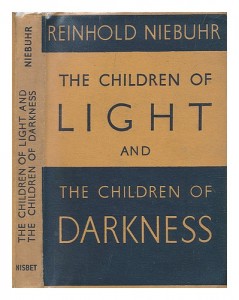When you step into the voting booth, you’re not voting for a candidate, at least not primarily for her. You are voting to protect twenty million newly-insured people under health reform. You’re voting for the single mom in Texas who has an unintended pregnancy, the child in Little Village whose parents need humane immigration policies, the disabled man who needs decent medical and social services, the little girl in Bangladesh whose village may someday be submerged if we don’t address to climate change.
It’s not about Clinton. It’s not about Sanders or Trump. We’re not voting “for” these people, or at least primarily for them. This election is not about expressing our personal identities and tribal affinities as voters, either. It’s about millions of people who have real things to lose if we elect the wrong person.
Listen, here’s the thing about politics: It’s not an expression of your moral purity and your ethics and your probity and your fond dreams of some utopian future. Progressive people constantly fail to get this.
Both Kushner 13 years ago and Pollack, writing today, are addressing those of us who are more left of center, because, as Kushner says, “progressive people constantly fail to get this.” We have a long history of circular firing squads and of giving in to the tendency to blur the line between standing on non-negotiable principle versus a narcissistic focus on our personal purity — of imagining that our politics consists mainly of voting, and that our voting should be an expression of tribal or ethical identity. Of making voting more about our ability to tell others or to tell ourselves who we voted for than about making the most responsible choice possible between imperfect choices.
It’s the difference between voting as taking responsibility and voting as preserving purity by avoiding complicity. The former is our obligation — legally as well as ethically. The latter is an illusion — a form of self-deception.
 I’m fortunate — or, rather, everyone else is fortunate — in that I was able to get this narcissistic Politics of Me out of my system in 1996, when it didn’t contribute to any unfortunate consequences. I didn’t cast a vote for president that year because I treated that vote as though it were about me, and I was too pure to become complicit in supporting Bill Clinton after welfare reform. Fortunately for the rest of the country, I wasn’t living in Florida with that same mindset four years later, casting one of those this-band-T-shirt-makes-me-cool-by-proxy votes for Ralph Nader that resulted in eight years of debt-financed tax-cuts for the rich, and in “All right. You’ve covered your ass, now,” and in the invasion and occupation of Iraq, and in “heck of a job, Brownie,” and in Roberts and Alito, and in Abu Ghraib and Gitmo, and in a near-Depression, and in the idea that the heat-trapping properties of carbon atoms should be a matter of partisan dispute.
I’m fortunate — or, rather, everyone else is fortunate — in that I was able to get this narcissistic Politics of Me out of my system in 1996, when it didn’t contribute to any unfortunate consequences. I didn’t cast a vote for president that year because I treated that vote as though it were about me, and I was too pure to become complicit in supporting Bill Clinton after welfare reform. Fortunately for the rest of the country, I wasn’t living in Florida with that same mindset four years later, casting one of those this-band-T-shirt-makes-me-cool-by-proxy votes for Ralph Nader that resulted in eight years of debt-financed tax-cuts for the rich, and in “All right. You’ve covered your ass, now,” and in the invasion and occupation of Iraq, and in “heck of a job, Brownie,” and in Roberts and Alito, and in Abu Ghraib and Gitmo, and in a near-Depression, and in the idea that the heat-trapping properties of carbon atoms should be a matter of partisan dispute.
This year, though, I’m seeing more of the narcissistic confusion that Pollack and Kushner criticize above on the right — and especially on the far right. The screeching voices of the religious right and of AM talk radio have divided into Trump and Cruz factions. After two terms of fiercely opposing every aspect of Obama’s presidency they have trained themselves in a Manichaean view of politics as a struggle between pure good and pure evil. They haven’t been able to turn that off during the primaries.
I don’t know if they’ll be able to dial that back after the primaries, either. The GOP may be headed to a riotously contested convention not because no candidate is able to secure a majority of delegates, but because many Republicans have become so invested in voting “as an expression of your moral purity and your ethics and your probity” and in voting as an expression of “personal identities and tribal affinities” that they are now unable to imagine backing anyone other than the candidate they’ve supported thus far in the primaries. They don’t see being on Team Trump or Team Cruz as a responsible choice between imperfect outcomes, but as a non-negotiable component of their identity as a morally pure, blameless, uncompromised and uncompromising political agent.
That’s not what voting is. It’s not about me and it’s not about you.












